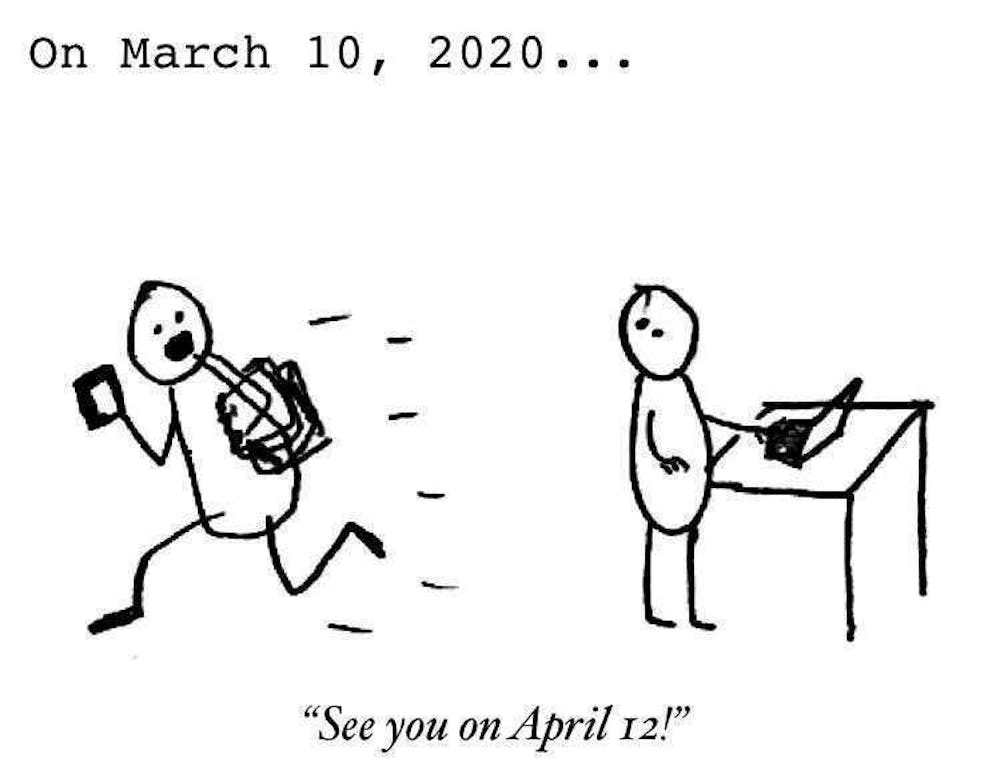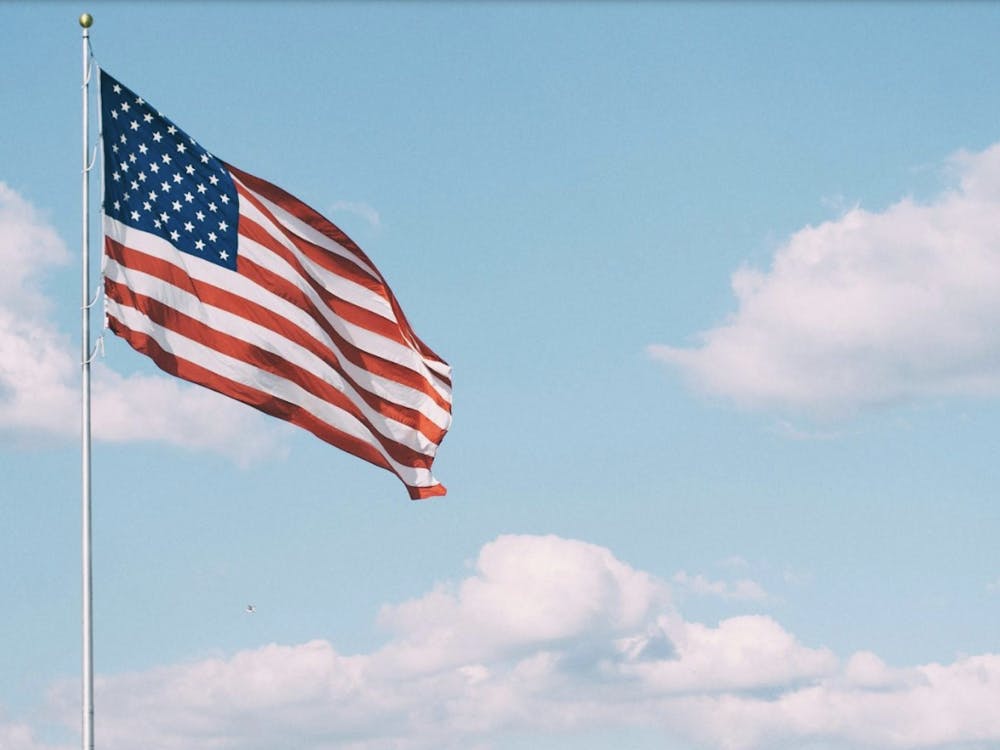We all remember where we were a year ago. The week started normally; students studied for tests, sports teams went to games and performing arts groups practiced for their spring showcases.
By Tuesday, March 10, the atmosphere on campus had shifted. Rumors swirled about how Hopkins would respond to the novel coronavirus sweeping the nation. That evening, Hopkins sent out an email announcing an immediate suspension of classes, exams and student affairs. Everyone was urged to go home, with in-person activities cancelled through at least April 12.
Across campus, students held last-minute parties, along with panicked goodbyes. No one knew how long the suspension would actually last. Some packed up their dorms and others expected to return in a few weeks.
In the News-Letter office, we continued with our regular coverage. As usual, writers and editors worked late through Wednesday night, but this time there was a sense of uncertainty in the Gatehouse. Editors said heartfelt goodbyes after laying out their pages. We didn’t know then — though some of us suspected — that it would be our last print issue for the foreseeable future.
At the time, there were only 500 confirmed cases of COVID-19 in the U.S. But as the virus spread, so did fears about catching it — we watched the numbers skyrocket on the Hopkins COVID-19 tracking map. Universities across the country made similar decisions to send students home. Given the University’s status as a leading public health institution, some criticized Hopkins for waiting too long before shutting down the school.
Through the uncertainty, Hopkins tried to make decisions to keep its entire community safe. Within a few weeks, it had extended online classes through the semester and implemented universal satisfactory/unsatisfactory (S/U) grading for all undergraduates. Despite the efforts, students felt worried and uninformed on matters ranging from forced dorm move-outs to handling mental health struggles.
Over the summer, we questioned if we would have a normal fall semester (we didn’t). In January, Hopkins finally resumed some level of in-person activity. The hybrid learning model had a rocky start due to party-induced outbreaks delaying the start of in-person classes.
But since then, with asymptomatic testing, limitations on gatherings and clear statements about accountability, the University has succeeded in providing students with a taste of campus life without compromising the safety of the greater Baltimore community. Similarly, by giving students the choice to remain home or return to campus, the University accommodates those making difficult decisions about housing and health.
It’s hard to believe that it’s been an entire year since we were sent home. This past year has taken a toll on us all. As much as we’ve missed our old normal, we hope that this past year has provided us with an opportunity to reflect on how we can rebuild better.
Students have learned to pay attention to more than just papers and problem sets. We’ve vocally participated in protests against the private police force and held each other accountable to wearing masks and social distancing. We’ve taken stands against racism and xenophobia and confronted the consequences of climate change. As a student body, we have risen to these challenges.
However, we can’t deny that it’s been an immensely taxing year. Despite efforts to provide increased support through virtual services, students still have concerns about the University’s mental health resources. While these times are unprecedented, mental health issues are not. We urge Hopkins to continue expanding the Counseling Center’s reach and for professors to be more understanding.
As an organization, The News-Letter has also changed since that fateful night in March. We have exclusively published online for nearly a year now, putting out new content every day of the week. Although we miss meeting face-to-face, we now have faster, more timely coverage on issues relevant to Hopkins students and the greater Baltimore community.
We look forward to the day when all of us are vaccinated. We eagerly anticipate the resumption of normal college life and the first real semesters for current freshmen, though we know we are not quite there yet. We also expect more of each other — we should always show concern for our community, even after the pandemic ends.





